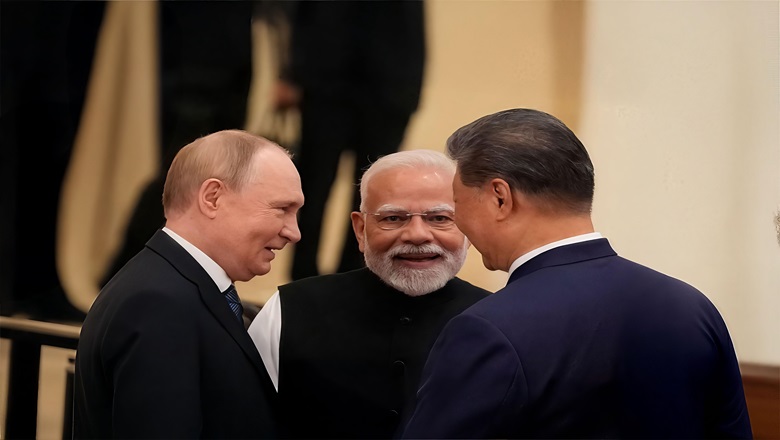This is a non-aligned group of countries trying to work out where they can work together, where they might not be able to work together, what their common ground might be and so I suppose that is an unprecedented situation.
Kerry Brown, Director of the Lau China Institute
04 September 2025
COMMENT: China's WWII commemoration highlights global shifts and historical alliances
Professor Kerry Brown, Director of the Lau China Institute, King's College London
As China marks the 80th anniversary of the end of the Second World War in Asia, Professor Kerry Brown, Director of the Lau China Institute at King’s College London, says the timing of President Xi Jinping’s meetings with world leaders reflects a shifting geopolitical landscape.

As China marks the 80th anniversary of the end of the Second World War in Asia, Professor Kerry Brown, Director of the Lau China Institute at King’s College London, says the timing of President Xi Jinping’s summit with world leaders reflects a shifting geopolitical landscape.
Speaking to CGTN Europe, Brown noted that the current global climate is “exceptional,” with many countries reassessing their positions in relation to the United States. He described the recent Shanghai Cooperation Organisation summit in Tianjin, Beijing as a gathering of “non-aligned” nations navigating shared concerns about America’s evolving role under President Trump.
Brown emphasized the importance of China’s wartime history, particularly its role as an ally of the UK, US, and other powers in the fight against fascism, “This historic link is still very important. In the first and the second world war, Chinese soldiers and Chinese logistics supporters came and were involved in the European struggle, and of course Europeans were involved in the struggle in China.
The military parade in Beijing, Brown explained, is not just a domestic event but a global one, reinforcing China’s status as a major military power in Asia, "The presence of international leaders, especially Russia’s President Vladimir Putin is very important".
Brown also highlighted the shared wartime legacy between China and Russia, noting that both nations played decisive roles in defeating fascism—China in the Pacific, and the Soviet Union in Europe. “This is an event that allows them to remember and integrate that memory,” he said.
Brown says that historical reflection can help foster more informed and balanced international relations, “China is a significant player with a significant military. And we need to know about that and we need to understand China’s aspirations in the modern world”.
